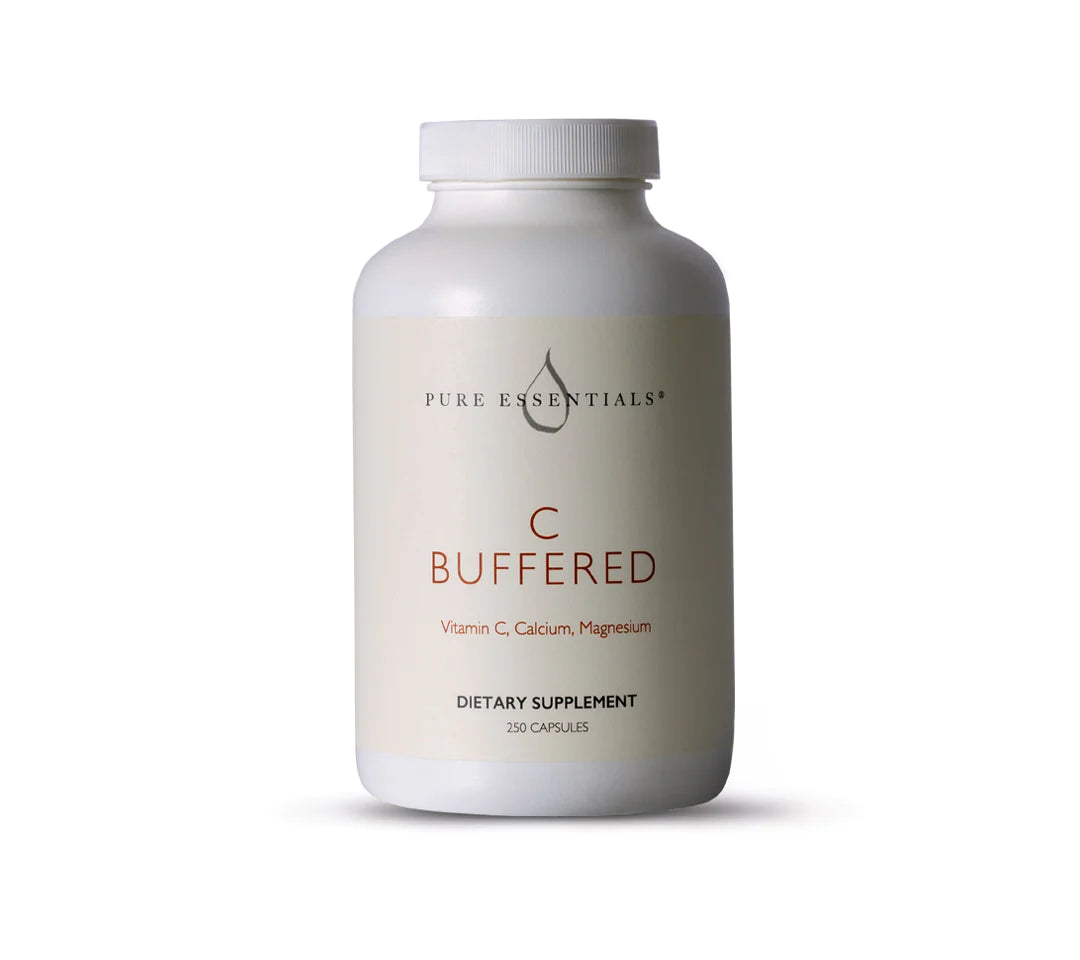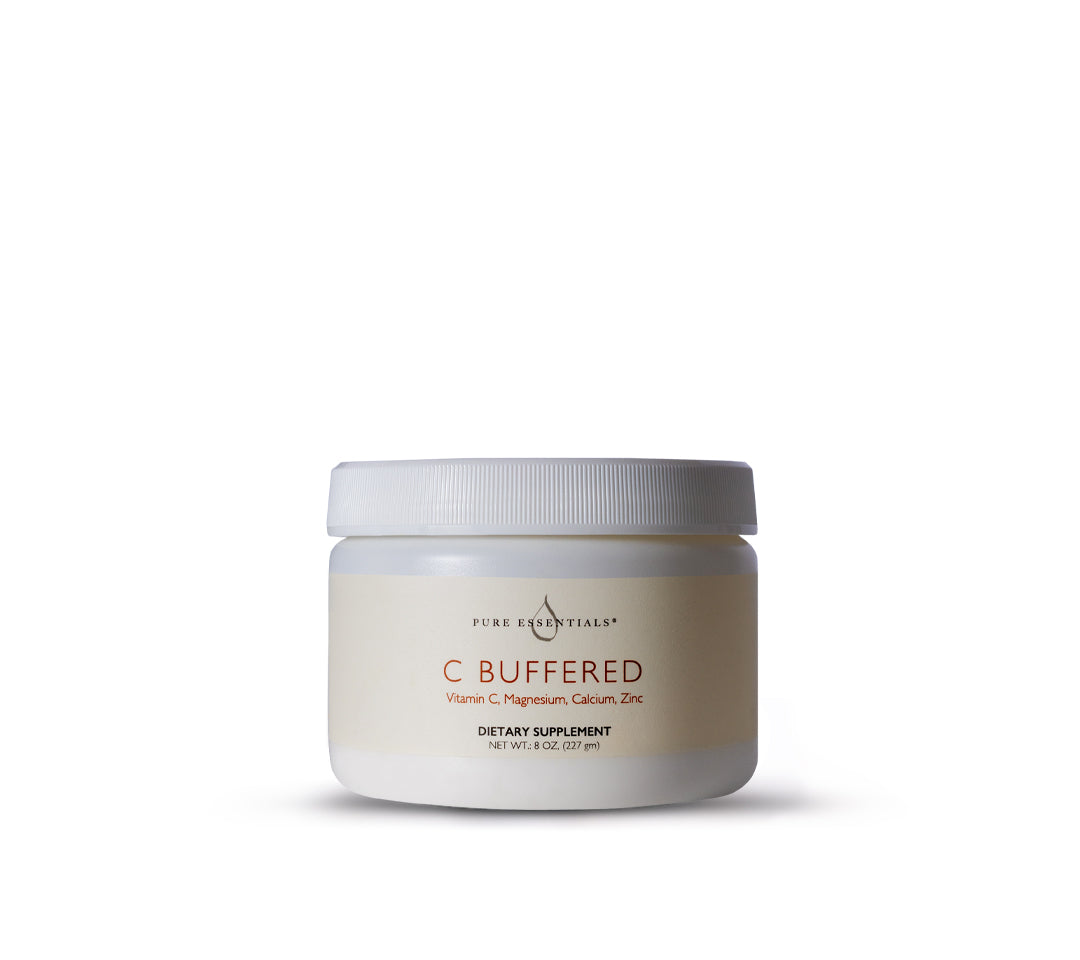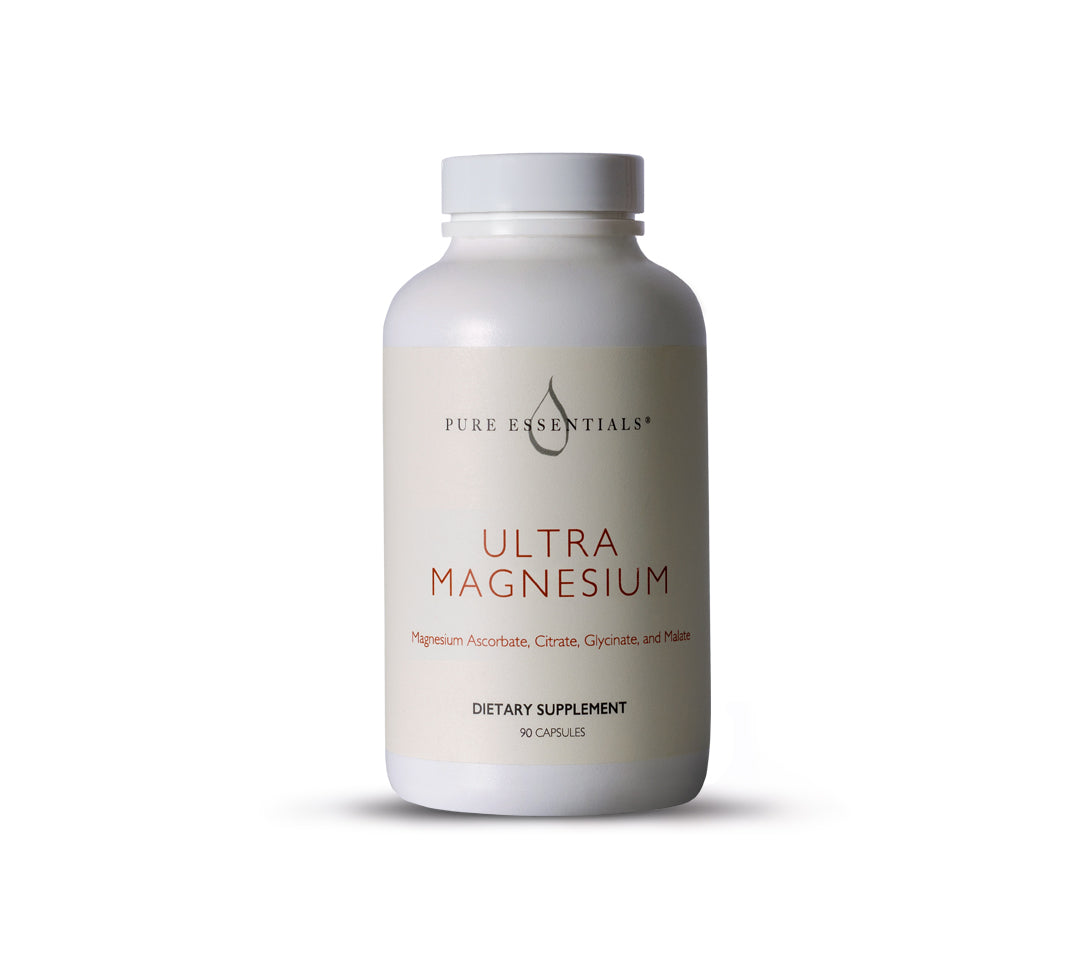We've all experienced it: finishing a meal, feeling our waistbands expand a couple of inches, and letting out a contented sigh of indulgence.
While our taste buds revel in the moment, our minds may harbor a sense of disappointment. By the time we reach adulthood, most of us can distinguish between healthy and unhealthy foods.
Maintaining a healthy diet becomes a challenge when hunger meets exhaustion and the allure of convenient options on Uber Eats beckons.
The vast expanse of the internet not only provides a wealth of knowledge but also exposes us to information manipulated for selfish gains.
Food trends flood our social media feeds, especially targeting younger generations. This is precisely why we at Pure Essentials are committed to delivering the information you need to make informed decisions about health and supplementation.
How can we make better choices to alleviate post-meal discomfort?
We’ll explore the common contributors to gut inflammation and how we can alleviate them with more conscious dietary choices.
Understanding Gut Inflammation & Gastritis
Gut inflammation, also known as gastritis, is a biological response within the digestive system. The term "gastritis" encompasses a range of symptoms and conditions characterized by an inflamed stomach lining.
It’s often associated with various digestive disorders, including irritable bowel syndrome (IBS), Crohn's disease, and ulcerative colitis.
This inflammatory response arises from issues within the digestive system and external influences. It involves a complex interplay of immune responses, microbial activity, and dietary influences, leading to symptoms such as stomach pain, indigestion, bloating, vomiting, and nausea.
Dietary choices play a significant role in gut inflammation. The foods we eat can either support or damage a healthy gut.
Understanding the link between dietary habits and gut inflammation is important for managing and potentially mitigating related health issues.
Gut Inflammation Triggers & The Hidden Costs Of Seed Oils
Gut inflammation can be triggered by certain foods, acting as potential contributor. These factors disrupt the balance in the gastrointestinal system, provoking inflammation.
Foods high in fat, drinking too much coffee, alcohol, carbonated drinks, and fried and spicy food can worsen gastritis symptoms.
Some studies suggest that 53% of people with gastritis eat too quickly or have irregular eating schedules, often accompanied by an unhealthy diet.
Which can lead to vitamin deficiencies due to inflammation blocking the absorption of B12 and iron.
These are the foods known to contribute to gastritis:
- Processed Foods: Processed foods contain artificial additives, preservatives, and high levels of refined sugars, which negatively impact the gut's microbial balance and immune response, fostering an environment conducive to inflammation.
- Sugar and Refined Carbohydrates: Excessive sugar intake and consumption of refined carbohydrates like white bread and sugary snacks promote the overgrowth of harmful gut bacteria, leading to inflammation and digestive disorders.
- Saturated Fats: Foods rich in saturated fats, especially from red meats and fried items, are recognized as potential contributors to gut inflammation, as they may stimulate immune responses and intestinal inflammation.
- Artificial Sweeteners: Some studies suggest that artificial sweeteners found in diet sodas and sugar-free products may alter gut bacteria composition and induce metabolic changes, potentially promoting gut inflammation.
Spotlight On Seed Oils
Another culprit contributing to an inflamed gut is seed oils.
Seed oils, like canola, corn, grapeseed, peanut, soybean, and sunflower seed oil, have raised health concerns due to potential toxicity when exposed to high temperatures.
And unless we’re eating raw foods, most of us are going to heat our oils when cooking.
These oils, introduced when food regulations were lax, are now widely used in our diets, both in prepared foods and home cooking.
Over a century of research, including animal studies, clinical trials, and observational studies, revealed the potential health risks of seed oils.
They are high in omega-6 polyunsaturated fatty acids, particularly linoleic acid, which can lead to inflammation when consumed in excess, especially in combination with a high intake of omega-3 fatty acids.
Industrialized seed oils also go through molecular changes during processing, storage, or cooking, which can further harm the body compared to other fats.
Individuals managing gut issues related to inflammation must understand how certain foods affect their gut health.
By reducing or eliminating these dietary triggers, one can proactively support a healthier gut.
Building A Gut-Friendly Diet: Smart Food Swaps
In contrast to foods that trigger gut inflammation, specific dietary choices can have a positive impact on reducing inflammation.
These foods support a healthy gut microbiome, provide essential nutrients, and contain bioactive compounds with anti-inflammatory properties.
- Fiber-Rich Food: Fruits, vegetables, and whole grains are excellent sources of dietary fiber, which promotes regular bowel movements and nourishes beneficial gut bacteria. A well-fed gut microbiome is less likely to contribute to inflammation.
- Probiotic-Rich Foods: Probiotics are live microorganisms with health benefits. Foods like yogurt, kefir, sauerkraut, and kimchi naturally contain probiotics, which regulate the gut environment, support the immune system, and mitigate inflammation.
- Omega-3 Fatty Acids: Predominantly found in fatty fish like salmon, mackerel, and sardines, as well as in walnuts and flaxseeds, omega-3s possess anti-inflammatory properties and reduce proinflammatory molecules within the body.
- Antioxidant-Rich Foods: Fruits and vegetables, particularly colorful ones, are rich in antioxidants like vitamins C and E, combating oxidative stress and inflammation in the gut.
- Turmeric and Ginger: These spices contain bioactive compounds with potent anti-inflammatory effects, potentially alleviating gut inflammation when incorporated into your diet.
- Green Tea: Green tea contains polyphenols, including epigallocatechin gallate (EGCG), known for its anti-inflammatory properties that contribute to gut health.
Choosing the right cooking oil is crucial for overall health and gut health. Healthy options include:
- Olive Oil: Extra virgin olive oil, rich in heart-healthy monounsaturated fats and antioxidants like polyphenols, offers anti-inflammatory benefits.
- Avocado Oil: With monounsaturated fats similar to olive oil, avocado oil is versatile and suitable for high-temperature cooking.
- Coconut Oil: While its health benefits are debated, coconut oil's unique composition, including medium-chain triglycerides (MCTs), may have anti-inflammatory effects. However, moderation is essential due to its high saturated fat content.
Understanding the role of these foods in reducing gut inflammation empowers individuals to make informed dietary choices that promote overall gastrointestinal well-being.
Incorporating these foods into your diet can support a balanced gut environment and potentially mitigate the risk of inflammation-related digestive disorders.
A Favorite Gut-Healthy Recipe
Try this delicious gut-friendly ground turkey and bell pepper recipe that takes only 30 minutes to cook!
Ingredients:
- 1 pound ground turkey
- 2 cups sliced bell peppers
- 4 cups shredded cabbage
- 2 cups cooked brown rice
- 2 cloves garlic, minced
- 2 tablespoons olive oil
- 2 tablespoons soy sauce
- 1 teaspoon ground ginger
- Salt and pepper, to taste
- Chopped green onions and sesame seeds for garnish (optional)
Instructions:
- In a large skillet, heat the olive oil over medium-high heat.
- Add the ground turkey and cook until it’s no longer pink, breaking it apart with a spatula as it cooks.
- Add the minced garlic, and sliced mushrooms (or your chosen substitute), and cook until the mushrooms are tender.
- Stir in the shredded cabbage (or your chosen substitute) and cook until it begins to wilt.
- Add the cooked cauliflower rice (or your chosen substitute) to the skillet and mix well.
- Pour in the coconut aminos (or soy sauce), ground ginger, salt, and pepper. Stir to combine and cook for a few more minutes until everything is heated through.
- Taste and adjust seasoning as needed.
- Serve your ground turkey bowl hot, garnished with chopped green onions and sesame seeds if desired.










